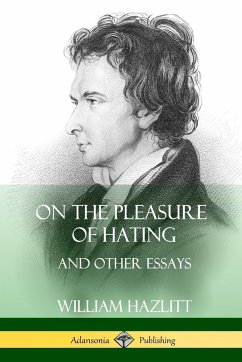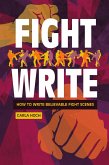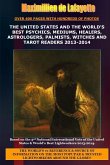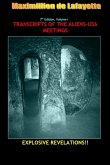On the Pleasure of Hating, William Hazlitt's classic contemplation of human hatred, is in this edition accompanied by several of his finest essays. As one of England's most distinguished wits of the early 19th century, William Hazlitt was an accomplished author, painter and critic whose barbed prose was notorious in literary circles at the time. Hazlitt wrote the titular essay of this collection in 1826, when his personal circumstances were strained; we thus find his tone both markedly resentful and embittered. On the Pleasure of Hating is, however, among the finest and most consistently insightful and lucid works Hazlitt ever wrote. Perhaps Hazlitt's greatest claim to prowess was his ability to produce succinct and quotable passages. Each of the six essays in this compendium contain prime examples of the perceptive phrases and summations which Hazlitt regularly produced in his prime.
Bitte wählen Sie Ihr Anliegen aus.
Rechnungen
Retourenschein anfordern
Bestellstatus
Storno








